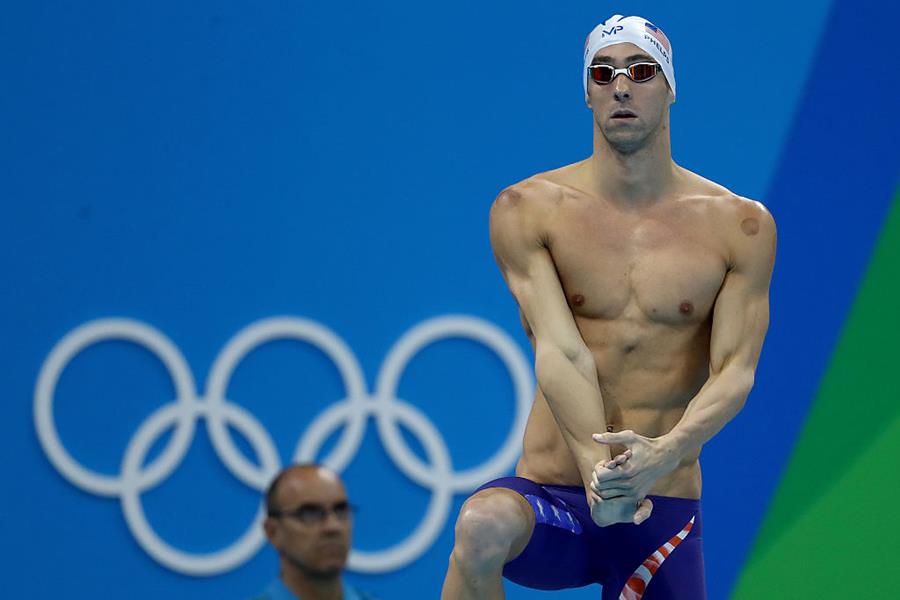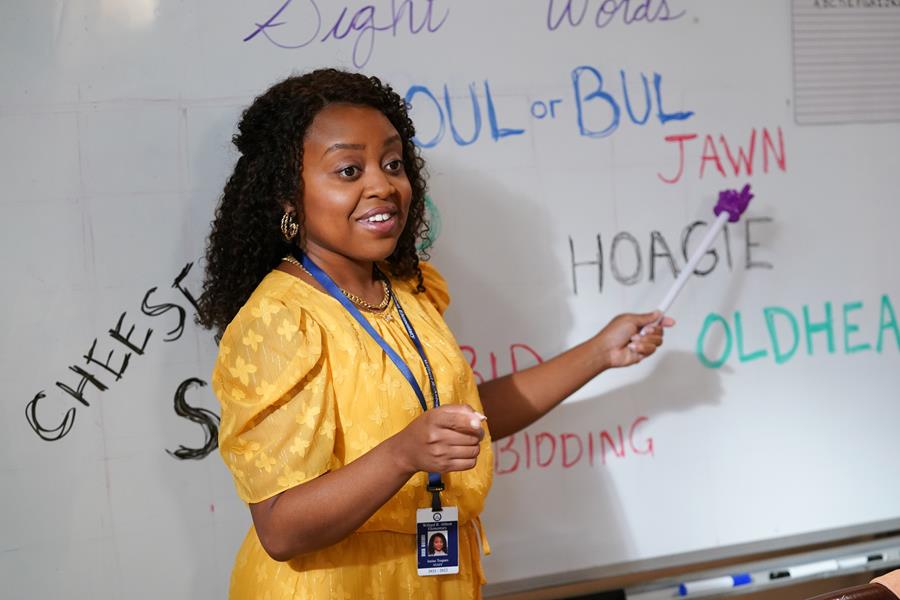Who gets to be glorious?
Hello and hope you’re doing great on this palindromic date. Numerology is not really my bag, but something about 2.2.22 feels fortuitous, like making a wish on an eyelash. Plus, it’s the second day of Black History Month, honoring Black Health and Wellness; and Sen. Cory Booker has brought Rep. Jamaal Bowman’s African American History Act, which would invest monetarily in African American history programs, to the Senate floor.
Today in the newsletter: on the eve of the Winter Olympics in Beijing—figure skaaaaatingggg, yesss—we’ve got author and former Olympian Casey Legler writing about why the rules and conversations around trans athletes must change (and are riddled with, what’s the word, bullshit). Also in this edition: Shannon Melero on her new favorite TV show, Abbott Elementary!
As ever, if you’d like to chat (or disagree) with us, drop us a line at [email protected]. —Julianne Escobedo Shepherd
DOUBLE STANDARDS
“Who Gets to Be Glorious?”
As a former Olympian, I’m not buying the “level playing field” arguments against trans athletes.
BY CASEY LEGLER
Last week, when asked about the University of Pennsylvania’s phenom trans swimmer Lia Thomas, the equally legendary swimmer Michael Phelps inputted, very unhelpfully, that in an effort to strive to make sports “a level playing field” the NCAA should intervene—and it did. The organization announced a major change to its transgender participation policy, which effectively forces trans athletes to prove they don’t have an unfair advantage, and makes it increasingly prohibitive for them to compete.
If the consequences weren’t so immediate and dire, I’d still be laughing at the irony of this statement coming from the mouth of the most decorated Olympian of all time—a comment displaying an extraordinary lack of insight into his own career. There was absolutely nothing “level” about the playing field when Phelps first began medaling on the Olympic pool deck in 2008, and that is exactly what made him fun to watch: he dominated. His extraordinary physicality and accomplishments were a gift to swimming. But how we talk about athletes, and who is “allowed” to be exceptional and who isn’t, is a real problem in sports—with real-life consequences on the ground.
The challenges to women and girl athletes who defy “normative” protocol—which is to say, hetero, cis, and white—are endless. In 1998, when ice figure skater Surya Bonaly became the first and only Olympian to perform a backflip landing on one blade, the judges penalized her for an illegal jump. While Shaquille O’Neal was celebrated for being a domineering player on the basketball court, Brittney Griner, as a young 22-year-old in the WNBA, was scrutinized, bullied, and genuinely asked to explain herself for exhibiting a similar physical playing style. In my own experience as an Olympic swimmer in the 1990s, my fellow showy sprinter Gary Hall Jr. was labeled an intuitive and intelligent competitor, albeit eccentric—whereas I was marked as irreverent, difficult, and unpredictable.
Phelps himself has benefited from an “unfair advantage” over his competitors: a naturally occurring ability to generate half the lactic acid normally produced at effort. Lactic acid is the chemical that impedes recovery, and Phelps’s lower levels have enabled his awesome ability to swim multiple races in one day and break records in all of them. He wasn’t questioned for that genetic anomaly; he was celebrated for it. But South African gold medalist Caster Semenya met a different reception to her own naturally occurring genetic advantages, including literal policing from the IOC about which races she could and could not run and a requirement that she take medication to lower her testosterone to, you guessed it, even the playing field.

These double standards have devastating consequences—not just for athletes like Semenya or Thomas, but for the kid down the street who just wants to play sports. These rules at the elite level inform club-level rules, or school policies; when we’re legislating against an individual like Lia Thomas, we’re also legislating who’s allowed to play on the Tiny Tots baseball team. That’s the antithesis of what sport has to offer.
And if you’re wondering how exactly these double standards persist—well, look at who runs our top teams. The head coaches of the current U.S. swim team are two women and seven men—and that leads to a general acceptance of inequities. When this is the make-up of the coaching staff, after all, it’s no surprise that procedures like skinfold tests (an athletically irrelevant test to measure fat, mostly on the bodies of women and girls) have been allowed to continue for decades. Other countries have moved to make their governing bodies more representative: In fact, this year, after an inquiry initiated by complaints from female athletes, Swim Australia mandated a required quota for female coaches; USA Swimming has no such equivalent. (It took until 2015 for the organization to mandate 20% representation of athletes on its board of directors—so much for “Nothing about us without us.”)
That regulation without representation means that in general, the heavy burden of advocating for their physical and mental health falls on the shoulders of athletes themselves—especially women, girls, trans and nonbinary competitors. But that’s in keeping with the general trend in sports, in which the adults leave the room, and change tends to come only through outside pressure, often by athletes who are young adults or children. It took Oregon basketball star Sedona Prince’s viral video of the measly weight rack at the 2021 NCAA Division I Women’s Basketball Tournament to extract a promise to rectify the disparity. And in a more extreme example, it took Rachael Denhollander, a former gymnast who was abused by Larry Nassar, to become a lawyer, and then bring a case against him, for that prolific abuser to finally meet his deserved demise.
The red herring of “controversies” around athletes like Lia Thomas distract us from the real problems the sports world needs to fix.
The solutions, if you ask me and other former athletes, are clear: Governing bodies should mandate equity between coaches across genders, in addition to installing an athlete on each team whose sole responsibility is to oversee the advocacy of the athletes (many of whom are still minors). And we shouldn’t let the red herring of “controversies” around athletes like Lia Thomas distract us from these very real problems the sports world needs to fix.
As for those athletes? Let them be special. Most of us will just never be part of the 0.01% of athletes who make up professional sports, and the reason we enjoy watching them is because they allow us to be transported, inspired, and entertained by their anomalous talent and rigor.
Talking about a “level playing field” when you’re talking about elite athletes misses the point. Elite competitors have always dazzled us with their exceptionalism and their wild feats of physicality, and we shouldn’t get to pick and choose who’s allowed to be that glorious.

Casey Legler is a reformed bad-boy, Olympian, New York Times-featured author, activist, and ground-breaking nonbinary model. Legler is the author of the best-selling memoir Godspeed.
WHAT ELSE IS HAPPENING
- Whoopi Goldberg has been suspended for two weeks for saying that the Holocaust wasn’t about “race” but instead about “man’s inhumanity to man.” While her comments displayed her ignorance about the racialized way the Nazis regarded Jews and Roma (Hitler was notoriously influenced by indigenous genocide and slavery in the U.S.), she tried to explain on Colbert that she didn’t make them maliciously—and went on to acknowledge that yes, “it is indeed about race.” But there’s an obvious double standard here, since Meghan McCain was allowed to make absurd, racist statements with no discipline. Whoopi is better educated now. Is Meghan?
- A series of bomb threats affected at least 17 HBCUs on the first day of Black History Month, resulting in schools across the country shutting down for investigations. Though no explosives have been found, the threats impinge upon the mental health of students, and drain college resources—which, of course, is part of the point. As Saigan Boyd, a 19-year-old Spelman student, told CNN, “I’m just tired of being terrorized like how my grandparents were.” If you’d like to donate to HBCU scholarship funds, you can do so at the HBCU Foundation or the UNCF.
AND:
- Robin Herman, who was hired in 1973 as The New York Times’s first woman sports reporter and was the first woman journalist allowed to report from a pro men’s locker room, has died. Of the backlash she received for simply doing her job, she once wrote: “I found myself forced to muster Supreme Court-worthy arguments for an inane, essentially logistical problem that could easily have been solved by a few big towels.”
- The Linda Lindas, the teen punk band which went viral for their great song “Racist Sexist Boy,” is releasing their first album, and with it comes a delightful new video for a new jam called “Growing Up.” It features lots of cats.

WHAT WE'RE WATCHING
I Wish I Attended Abbott Elementary
BY SHANNON MELERO

So! You’re all caught up on Succession and that third rewatch of Girlfriends just isn’t hitting the way it used to (call me crazy but I would not want to be friends with Miss Joan Clayton, Esq.). Well, as one pop culture icon said many, many years ago, I bring tidings of great joy. The top comedy of the winter isn’t premiering on yet another streaming service–it’s on network television.
Abbott Elementary—created by Quinta Brunson, who basically invented Internet comedy and who you might know from A Black Lady Sketch Show—is a delightful series that follows a group of teachers at a public school in Philadelphia. Filmed in a style similar to The Office, Brunson stars as Janine Teagues, a young, slightly naive, second-grade teacher working against a crumbling school system and an unqualified, apathetic principal. That may not sound funny considering the state of education these days, but I assure you there are laughs to be had and tender moments to enjoy. Not to get into spoiler territory, but one such moment came when one of the kindergarten students who’d had trouble reading successfully got through the pages of Michelle Obama’s Becoming. It reminded me of my own brief time in kindergarten where an astute teacher spotted my vigor for reading and skipped me to the first grade. When I told my mom this had happened she didn’t believe me, but that’s another story for another day (call me Quinta, let’s talk about it).
The show also has an interesting and absolutely precious bit of backstory. Brunson named the titular school after her sixth-grade teacher, Ms. Abbott, who is now retiring after 30 years as an educator. Now, Ms. A has something to watch on vacation. Abbott Elementary is a breath of fresh air cutting through the usual TV diet of nostalgic revivals and the most boring season of The Bachelor in recorded history. I dare you—yes you, holding your electronic device right now—to watch the first few episodes and not laugh a full belly laugh. I triple-dog-dare you. —Shannon Melero